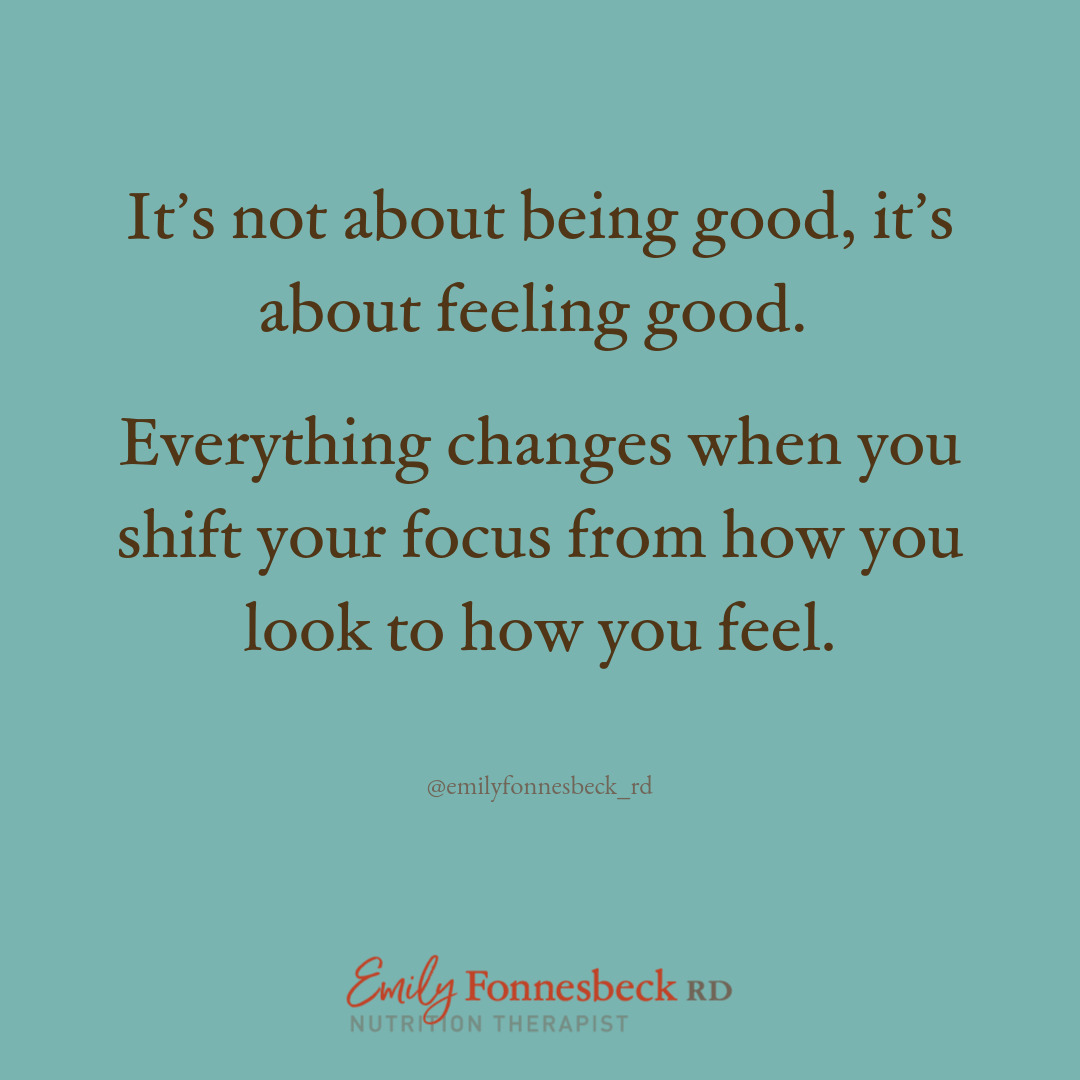As a weight-neutral, non-diet dietitian, I believe strongly that weight is not a reliable predictor of health and am not one to measure the success of nutrition interventions based on changes in body weight. I’d love to take the opportunity to explain why I feel like a weight-neutral approach to health matters.
Culturally, we are often led to believe that if you just work hard enough, you can look however you want. That’s a dangerous mentality and can easily lead to extremes in eating and exercise.
We have much less control over what we weigh than we are led to believe. Our genetics largely influence our set-point or the weight range in which your body is programmed to function optimally. Obviously our environment will have some influence, but it’s unhelpful to assume that everyone will be able to fit into a BMI of 18 to 25 or a waist circumference of 35 to 40 inches without considerable physiologic adaptations that encourage a return to their set-point.
Despite the emphasis on obesity as a major health issue, little progress has been made toward its treatment or prevention. The typical recommendation is dieting, and no research has found weight-loss interventions to be sustained beyond two years.
However, there is excellent research to support a weight-neutral, nutrition and physical-activity-based, Health at Every Size approach as a very promising chronic disease prevention strategy.
Health at Every Size is a movement to support people in adopting health habits for the sake of health and well-being rather than weight control.
This doesn’t mean a weight-neutral approach is anti-weight loss. Weight loss could be an outcome of adopting healthier habits, but a change in health and well-being functions separately from weight loss. It doesn’t mean that everyone will be healthy at any size, it means that health is possible in a wider variety of sizes than we now diagnose as healthy.
As a dietitian who regularly counsels individuals on nutrition, I find it far more empowering to focus on behaviors and habits (something the individual does have control over) than to try to control an outcome (weight loss) that is largely influenced by genetics (something the individual has no control over).

My goal for anyone I work with is to normalize eating behaviors and help them develop skills to self-moderate food without rules. I hope to help them become self-directed in balancing their body’s need for nourishment with its need for satisfaction. This is done by balancing nutrition knowledge with innate eating wisdom — hunger and fullness as one example — otherwise known as intuitive eating.
Intuitive eating is an eating model with research to support its ability to improve health risk factors, metabolic profiles (cholesterol levels, etc.) and psychological well-being while decreasing disordered eating and food anxiety. Not surprisingly, it’s also found to improve interoceptive awareness (perception of internal bodily sensations) and (possibly surprising to some) improve body image. All this happens even in the absence of weight loss.
As a dietitian who believes strongly in evidence-based practice, I would want you to know that intuitive eating is absolutely substantiated and validated as an excellent tool for improving your health and well-being.
Because it’s a validated tool, it’s important that we use it as it’s intended. The message gets twisted a lot, so it’s important to have regular reminders. If you want the results that intuitive eating offers, you have to be true to what intuitive eating actually is. It’s about connection and respect, not manipulation or weight loss.
In a weight and appearance-obsessed world, it’s wise to step back to gain perspective. Health includes physical, mental and emotional well-being, and if we remember that, we can treat the whole person, not just the number on the scale.
If the quest for weight loss causes preoccupation with weight and food, it could negatively impact someone’s mental and emotional health. If we do discuss weight, it needs to be just one data point among many other factors or recommendations discussed.
I have seen way too many patients who delay getting medical care because they don’t want to talk about their weight or who feel so much shame and hatred toward food and their body because they can’t seem to lose weight and keep it off. My message to readers would be that I see much more consistency with nutrition and exercise (and avoidance of extreme, all-or-nothing behavior) when it isn’t done for weight loss and instead is used to increase overall well-being.
It’s not about being good, it’s about feeling good. Everything changes when you shift your focus from how you look to how you feel.

Trackbacks/Pingbacks